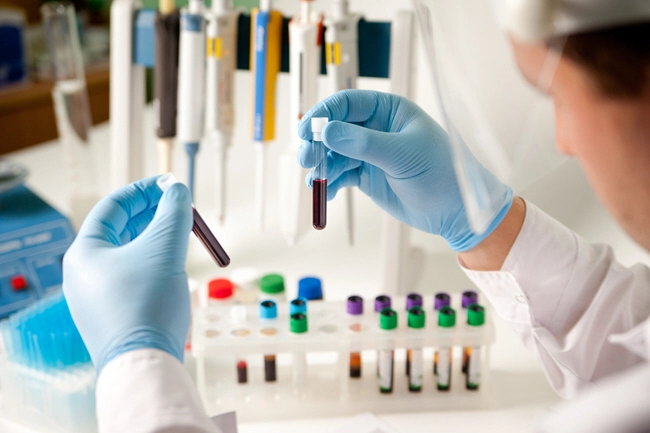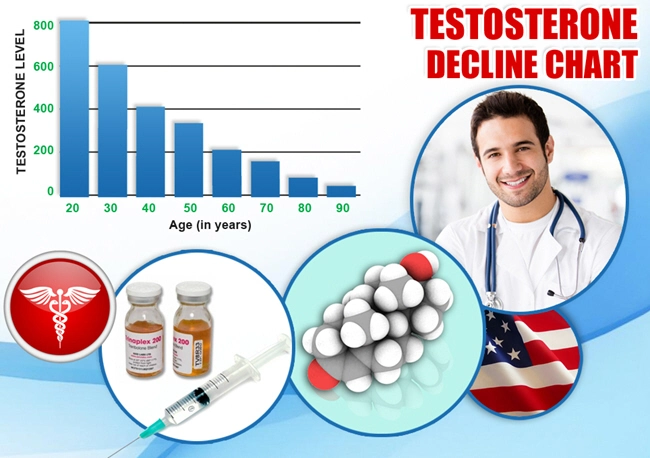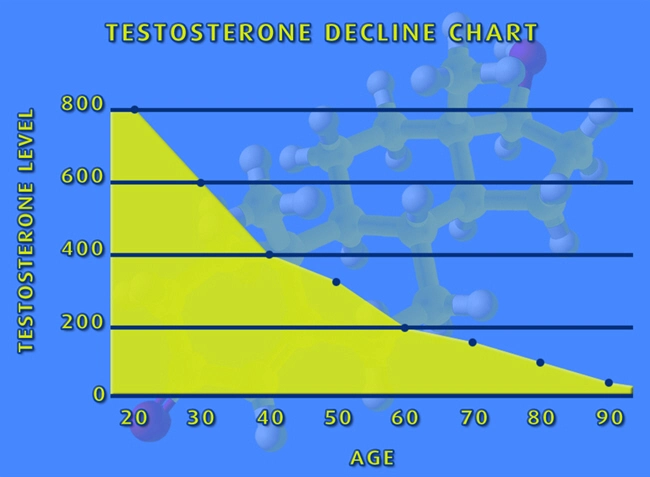
Introduction
Primary hypogonadism, a condition characterized by the inadequate production of testosterone due to testicular failure, poses significant health challenges for American males. Recent research has begun to explore the potential benefits of vitamin D supplementation in managing this condition. This article delves into a three-year randomized controlled trial that investigated the effects of vitamin D on primary hypogonadism, offering new insights into its therapeutic potential.
Study Design and Methodology
The study involved 200 American males diagnosed with primary hypogonadism, aged between 30 and 60 years. Participants were randomly assigned to either a treatment group receiving vitamin D supplements or a placebo group. The treatment group received 4000 IU of vitamin D daily, while the placebo group received an identical-looking capsule without the active ingredient. Over the course of three years, participants underwent regular assessments to monitor changes in testosterone levels, bone density, and overall health.
Results: Testosterone Levels and Vitamin D
One of the primary outcomes measured was the change in serum testosterone levels. At the end of the three-year period, the treatment group showed a statistically significant increase in testosterone levels compared to the placebo group. Specifically, the average testosterone level in the vitamin D group increased by 20%, whereas the placebo group experienced a minimal change of 2%. These findings suggest that vitamin D supplementation may play a crucial role in enhancing testosterone production in males with primary hypogonadism.
Bone Density and Vitamin D
Bone health is another critical concern for individuals with primary hypogonadism, as low testosterone levels can lead to decreased bone density and an increased risk of osteoporosis. The study found that participants in the vitamin D group experienced a significant improvement in bone mineral density compared to those in the placebo group. This improvement was particularly notable in the lumbar spine and femoral neck, areas commonly affected by osteoporosis. These results underscore the potential of vitamin D to mitigate the bone-related complications associated with primary hypogonadism.
Overall Health and Quality of Life
Beyond testosterone levels and bone density, the study also assessed the impact of vitamin D supplementation on overall health and quality of life. Participants in the treatment group reported higher energy levels, improved mood, and better sexual function compared to the placebo group. These subjective improvements were corroborated by objective measures, such as increased physical activity and reduced fatigue. The findings suggest that vitamin D supplementation may offer comprehensive benefits that extend beyond hormonal and skeletal health.
Mechanisms of Action
The mechanisms by which vitamin D influences testosterone production and bone health are multifaceted. Vitamin D receptors are present in the testes and play a role in regulating the synthesis of testosterone. Additionally, vitamin D enhances calcium absorption, which is essential for maintaining bone density. The study's results align with these biological mechanisms, providing a plausible explanation for the observed benefits.
Implications for Clinical Practice
The findings from this randomized controlled trial have significant implications for the management of primary hypogonadism in American males. Healthcare providers may consider incorporating vitamin D supplementation into treatment plans, particularly for patients who exhibit low vitamin D levels. However, further research is needed to establish optimal dosing regimens and to explore the long-term effects of vitamin D supplementation in this population.
Conclusion
This three-year randomized controlled trial provides compelling evidence that vitamin D supplementation can improve testosterone levels, bone density, and overall health in American males with primary hypogonadism. As the medical community continues to seek effective treatments for this condition, the potential of vitamin D as a therapeutic agent warrants further investigation. By integrating these findings into clinical practice, healthcare providers can enhance the quality of life for patients grappling with the challenges of primary hypogonadism.
Contact Us Today For A Free Consultation
Dear Patient,
Once you have completing the above contact form, for security purposes and confirmation, please confirm your information by calling us.
Please call now: 1-800-380-5339.
Welcoming You To Our Clinic, Professor Tom Henderson.

- 0001) Primary Hypogonadism: Understanding, Overcoming Stigma, and Effective Treatment in American Males [Last Updated On: February 26th, 2025] [Originally Added On: February 26th, 2025]
- 0002) Primary Hypogonadism and Diabetes: Dual Challenges and Integrated Management in Men's Health [Last Updated On: March 18th, 2025] [Originally Added On: March 18th, 2025]
- 0003) Primary Hypogonadism and Obesity Link in American Males: Hormonal and Metabolic Insights [Last Updated On: March 18th, 2025] [Originally Added On: March 18th, 2025]
- 0004) Primary Hypogonadism in American Men: Medical Treatment and Vital Support Networks [Last Updated On: March 18th, 2025] [Originally Added On: March 18th, 2025]
- 0005) Primary Hypogonadism: Impacts, Diagnosis, and Treatment Options for American Men [Last Updated On: March 18th, 2025] [Originally Added On: March 18th, 2025]
- 0006) Primary Hypogonadism: Innovative Treatments and Hope for American Males [Last Updated On: March 19th, 2025] [Originally Added On: March 19th, 2025]
- 0007) Emotional Journey of Primary Hypogonadism in American Males: Challenges and Support [Last Updated On: March 19th, 2025] [Originally Added On: March 19th, 2025]
- 0008) Exercise Strategies for Managing Primary Hypogonadism in American Males [Last Updated On: March 20th, 2025] [Originally Added On: March 20th, 2025]
- 0009) Diet and Nutrition's Role in Managing Primary Hypogonadism in American Males [Last Updated On: March 20th, 2025] [Originally Added On: March 20th, 2025]
- 0010) Primary Hypogonadism: Causes, Symptoms, and Management in Aging American Men [Last Updated On: March 21st, 2025] [Originally Added On: March 21st, 2025]
- 0011) Primary Hypogonadism's Impact on Muscle Mass in American Males: Insights and Interventions [Last Updated On: March 21st, 2025] [Originally Added On: March 21st, 2025]
- 0012) Financial Burden of Primary Hypogonadism on American Men: Costs, Coverage, and Coping Strategies [Last Updated On: March 22nd, 2025] [Originally Added On: March 22nd, 2025]
- 0013) Managing Primary Hypogonadism: Navigating Diagnosis, Treatment, and Healthcare in America [Last Updated On: March 22nd, 2025] [Originally Added On: March 22nd, 2025]
- 0014) Primary Hypogonadism in American Men: Advocacy, Diagnosis, and Treatment Strategies [Last Updated On: March 22nd, 2025] [Originally Added On: March 22nd, 2025]
- 0015) Primary Hypogonadism: Impact on Work and Management Strategies for American Men [Last Updated On: March 22nd, 2025] [Originally Added On: March 22nd, 2025]
- 0016) Exploring Primary Hypogonadism: Current Treatments and Future Innovations for American Males [Last Updated On: March 22nd, 2025] [Originally Added On: March 22nd, 2025]
- 0017) Primary Hypogonadism in American Men: Holistic Management and Quality of Life Improvement [Last Updated On: March 23rd, 2025] [Originally Added On: March 23rd, 2025]
- 0018) Primary Hypogonadism: Long-term Effects and Management in American Males [Last Updated On: March 23rd, 2025] [Originally Added On: March 23rd, 2025]
- 0019) Primary Hypogonadism: Causes, Impacts, and Treatment Options for American Men [Last Updated On: March 23rd, 2025] [Originally Added On: March 23rd, 2025]
- 0020) Primary Hypogonadism: Understanding, Diagnosing, and Treating Low Testosterone in American Males [Last Updated On: March 24th, 2025] [Originally Added On: March 24th, 2025]
- 0021) Managing Primary Hypogonadism: Testosterone's Role and Treatment in American Men [Last Updated On: March 24th, 2025] [Originally Added On: March 24th, 2025]
- 0022) Diagnosing Primary Hypogonadism: Symptoms, Testing, and Treatment Journey for American Men [Last Updated On: March 24th, 2025] [Originally Added On: March 24th, 2025]
- 0023) Primary Hypogonadism and Sleep: Impacts and Interventions for American Men [Last Updated On: March 24th, 2025] [Originally Added On: March 24th, 2025]
- 0024) Genetic Testing for Primary Hypogonadism: Diagnosis and Management in American Males [Last Updated On: March 24th, 2025] [Originally Added On: March 24th, 2025]
- 0025) Primary Hypogonadism: Causes, Treatment, and Management for American Men [Last Updated On: March 24th, 2025] [Originally Added On: March 24th, 2025]
- 0026) Primary Hypogonadism's Impact on Physical Activity in American Males [Last Updated On: March 25th, 2025] [Originally Added On: March 25th, 2025]
- 0027) Challenges in Diagnosing Primary Hypogonadism in American Males: Symptoms, Testing, and Stigma [Last Updated On: March 25th, 2025] [Originally Added On: March 25th, 2025]
- 0028) Primary Hypogonadism in American Men: Symptoms, Diagnosis, and Mental Health Support [Last Updated On: March 25th, 2025] [Originally Added On: March 25th, 2025]
- 0029) Primary Hypogonadism: Challenges, Resilience, and Thriving Strategies for American Males [Last Updated On: March 25th, 2025] [Originally Added On: March 25th, 2025]
- 0030) Primary Hypogonadism: Symptoms, Treatment, and the Vital Role of Peer Support [Last Updated On: March 25th, 2025] [Originally Added On: March 25th, 2025]
- 0031) Primary Hypogonadism: Understanding Treatments and Managing Side Effects in American Males [Last Updated On: March 25th, 2025] [Originally Added On: March 25th, 2025]
- 0032) Primary Hypogonadism: Social Impacts and Navigating Life in American Men [Last Updated On: March 25th, 2025] [Originally Added On: March 25th, 2025]
- 0033) Managing Primary Hypogonadism: Importance of Regular Check-ups for American Males [Last Updated On: March 26th, 2025] [Originally Added On: March 26th, 2025]
- 0034) Primary Hypogonadism: Impact on Self-Esteem and Holistic Management Strategies [Last Updated On: March 26th, 2025] [Originally Added On: March 26th, 2025]
- 0035) Nutritionists' Vital Role in Managing Primary Hypogonadism in American Males [Last Updated On: March 26th, 2025] [Originally Added On: March 26th, 2025]
- 0036) Managing Primary Hypogonadism: Diagnosis, Treatment, and Lifestyle Strategies [Last Updated On: March 26th, 2025] [Originally Added On: March 26th, 2025]
- 0037) Primary Hypogonadism: Impact on Body Image and Holistic Treatment Approaches [Last Updated On: March 26th, 2025] [Originally Added On: March 26th, 2025]
- 0038) Primary Hypogonadism in American Males: Diagnosis, Treatment, and Lifestyle Management [Last Updated On: March 26th, 2025] [Originally Added On: March 26th, 2025]
- 0039) Primary Hypogonadism: Emotional Impacts and Management Strategies for American Males [Last Updated On: March 26th, 2025] [Originally Added On: March 26th, 2025]
- 0040) Primary Hypogonadism in American Men: The Vital Role of Community Support [Last Updated On: March 26th, 2025] [Originally Added On: March 26th, 2025]
- 0041) Primary Hypogonadism's Impact on Career Aspirations in American Males [Last Updated On: March 27th, 2025] [Originally Added On: March 27th, 2025]
- 0042) Primary Hypogonadism: Symptoms, Diagnosis, and Management in American Men [Last Updated On: March 27th, 2025] [Originally Added On: March 27th, 2025]
- 0043) Primary Hypogonadism: Advocating for Research and Awareness in American Men [Last Updated On: March 27th, 2025] [Originally Added On: March 27th, 2025]
- 0044) Primary Hypogonadism: Understanding, Managing, and Educating American Males [Last Updated On: March 27th, 2025] [Originally Added On: March 27th, 2025]
- 0045) Primary Hypogonadism: Symptoms, Diagnosis, Treatment, and Healthcare Navigation in the U.S. [Last Updated On: March 27th, 2025] [Originally Added On: March 27th, 2025]
- 0046) Family Support Crucial for Managing Primary Hypogonadism in American Males [Last Updated On: March 27th, 2025] [Originally Added On: March 27th, 2025]
- 0047) Primary Hypogonadism: Diagnosis, Specialist Care, and Treatment for American Men [Last Updated On: March 28th, 2025] [Originally Added On: March 28th, 2025]
- 0048) Primary Hypogonadism: Impact, Diagnosis, and Treatment for American Men's Health [Last Updated On: March 28th, 2025] [Originally Added On: March 28th, 2025]
- 0049) Primary Hypogonadism: Emotional Support Needs and Comprehensive Care for American Men [Last Updated On: March 29th, 2025] [Originally Added On: March 29th, 2025]
- 0050) Exercise Physiologists' Vital Role in Managing Primary Hypogonadism in American Males [Last Updated On: March 30th, 2025] [Originally Added On: March 30th, 2025]
- 0051) Managing Primary Hypogonadism: Stress, Anxiety, and Holistic Health Strategies for Men [Last Updated On: March 30th, 2025] [Originally Added On: March 30th, 2025]
- 0052) Primary Hypogonadism: Impacts on Male Fertility and Family Planning in America [Last Updated On: March 30th, 2025] [Originally Added On: March 30th, 2025]
- 0053) Managing Primary Hypogonadism: Importance of Continuous Monitoring and Early Diagnosis [Last Updated On: March 31st, 2025] [Originally Added On: March 31st, 2025]
- 0054) Managing Primary Hypogonadism: Diet, Exercise, Sleep, and Lifestyle Strategies for American Men [Last Updated On: March 31st, 2025] [Originally Added On: March 31st, 2025]
- 0055) Overcoming Psychological Barriers to Treating Primary Hypogonadism in American Males [Last Updated On: April 1st, 2025] [Originally Added On: April 1st, 2025]
- 0056) Primary Hypogonadism in American Males: Diagnosis, Treatment, and Endocrinologist's Role [Last Updated On: April 5th, 2025] [Originally Added On: April 5th, 2025]
- 0057) Primary Hypogonadism: Impacts and Interventions for American Males' Social Life [Last Updated On: April 5th, 2025] [Originally Added On: April 5th, 2025]
- 0058) Financial Assistance Options for American Men with Primary Hypogonadism [Last Updated On: April 6th, 2025] [Originally Added On: April 6th, 2025]
- 0059) Primary Hypogonadism in American Males: Importance of Patient Education for Better Outcomes [Last Updated On: April 7th, 2025] [Originally Added On: April 7th, 2025]
- 0060) Managing Primary Hypogonadism: Symptoms, Diagnosis, and Treatment in American Men [Last Updated On: April 7th, 2025] [Originally Added On: April 7th, 2025]
- 0061) Primary Hypogonadism in American Men: Symptoms, Diagnosis, and Treatment Options [Last Updated On: April 9th, 2025] [Originally Added On: April 9th, 2025]
- 0062) Support Groups: Vital for American Males with Primary Hypogonadism [Last Updated On: April 9th, 2025] [Originally Added On: April 9th, 2025]
- 0063) Primary Hypogonadism: Challenges and Strategies for Enhancing Treatment Adherence in American Males [Last Updated On: April 10th, 2025] [Originally Added On: April 10th, 2025]
- 0064) Technology's Role in Managing Primary Hypogonadism: Wearables, Telemedicine, and Advanced Diagnostics [Last Updated On: April 10th, 2025] [Originally Added On: April 10th, 2025]
- 0065) Managing Primary Hypogonadism: A Multidisciplinary Approach for American Men [Last Updated On: April 11th, 2025] [Originally Added On: April 11th, 2025]
- 0066) Primary Hypogonadism: Challenges and Holistic Support for American Males [Last Updated On: April 12th, 2025] [Originally Added On: April 12th, 2025]
- 0067) Mental Health Apps: Supporting American Men with Primary Hypogonadism [Last Updated On: April 13th, 2025] [Originally Added On: April 13th, 2025]
- 0068) Primary Hypogonadism: Symptoms, Treatments, and Latest Research for American Men [Last Updated On: April 14th, 2025] [Originally Added On: April 14th, 2025]
- 0069) Primary Hypogonadism's Impact on American Males' Hobbies and Interests [Last Updated On: April 16th, 2025] [Originally Added On: April 16th, 2025]
- 0070) Managing Primary Hypogonadism: Importance of Regular Monitoring and Holistic Care [Last Updated On: April 16th, 2025] [Originally Added On: April 16th, 2025]
- 0071) Primary Hypogonadism: Challenges and Strategies for American Males' Travel [Last Updated On: April 17th, 2025] [Originally Added On: April 17th, 2025]
- 0072) Managing Primary Hypogonadism: Symptoms, Diagnosis, and Treatment for American Men [Last Updated On: April 17th, 2025] [Originally Added On: April 17th, 2025]
- 0073) Physical Therapy's Vital Role in Managing Primary Hypogonadism in American Males [Last Updated On: April 18th, 2025] [Originally Added On: April 18th, 2025]
- 0074) Managing Primary Hypogonadism: A Multidisciplinary Approach for American Men's Health [Last Updated On: April 18th, 2025] [Originally Added On: April 18th, 2025]
- 0075) Managing Primary Hypogonadism: Empowering American Men in the Workplace [Last Updated On: April 18th, 2025] [Originally Added On: April 18th, 2025]
- 0076) Primary Hypogonadism's Impact on American Males' Educational Pursuits and Management Strategies [Last Updated On: April 18th, 2025] [Originally Added On: April 18th, 2025]
- 0077) Dietitians' Role in Managing Primary Hypogonadism Through Nutrition in American Males [Last Updated On: April 19th, 2025] [Originally Added On: April 19th, 2025]
- 0078) Primary Hypogonadism in American Men: Symptoms, Treatment, and Personalized Care [Last Updated On: April 19th, 2025] [Originally Added On: April 19th, 2025]
- 0079) Telemedicine Revolutionizes Primary Hypogonadism Care for American Males [Last Updated On: April 21st, 2025] [Originally Added On: April 21st, 2025]
- 0080) Primary Hypogonadism: Impacts and Management Strategies for American Men [Last Updated On: April 22nd, 2025] [Originally Added On: April 22nd, 2025]








